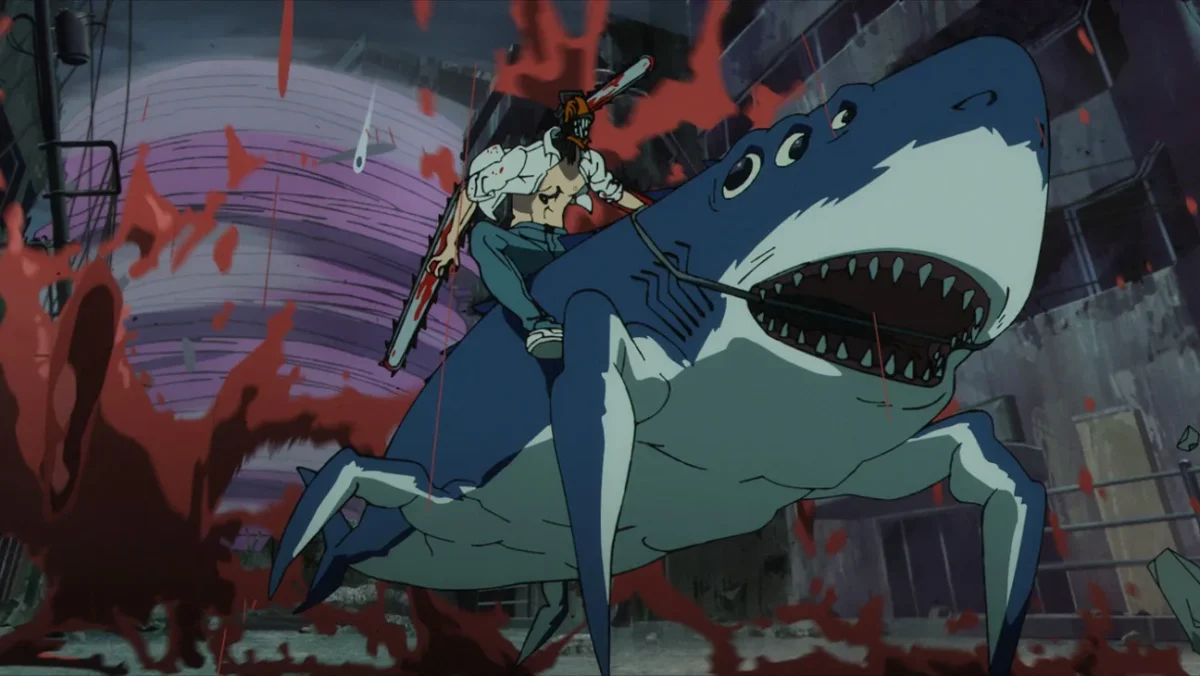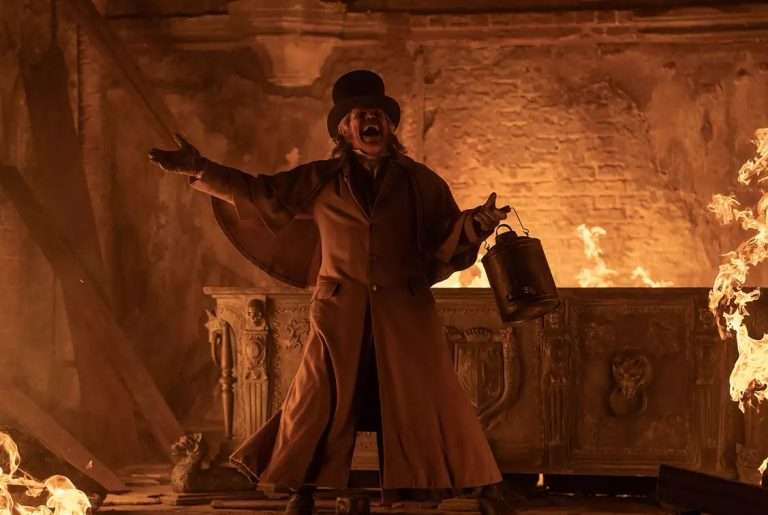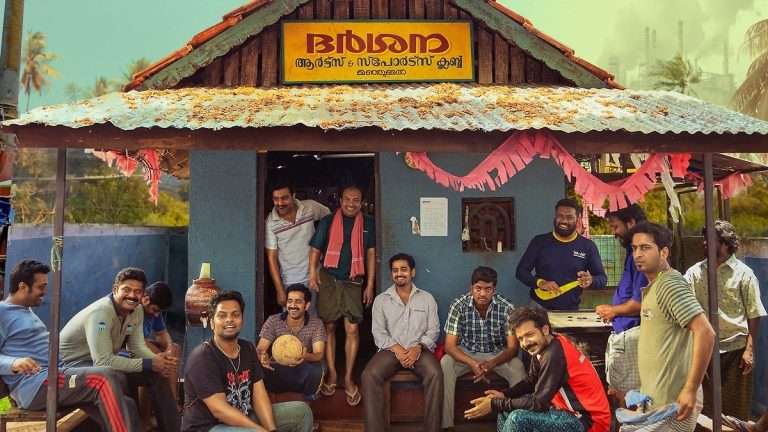Tatsuki Fujimoto’s “Chainsaw Man,” adapted from his acclaimed manga, centers on a protagonist whose sheer irreverence and lack of restraint feel refreshingly alien compared to the rigid moral codes that guide most shonen heroes — including those in recent juggernauts like “Demon Slayer.” Denji comes from abject poverty.
Having inherited nothing but his late father’s debt, he works as a Devil Hunter for the yakuza and, before that, even sells his own organs to survive. Fujimoto mines his social ineptitude and scrappy survival instincts for both absurd comedy and startling violence, yet none of it feels excessive or contrived. Beneath the carnage runs a disarming honesty — a sense that Denji’s hungers for food, affection, and pleasure are not moral failings but proof of life itself.
That uneasy blend of recklessness and tenderness continues into “Chainsaw Man: Reze Arc,” where Fujimoto deepens his exploration of what it means to live, love, and lose without the safety net of idealism. Directed by Tatsuya Yoshihara, “Chainsaw Man: Reze Arc” extends the series’ darkly exhilarating blend of action and fantasy within the world of Public Safety’s devil hunters, known as Special Division 4.
Picking up after the Katana Man’s defeat, Denji now shares a fragile domestic routine with Power and Aki under the agency’s supervision. For the first time, he experiences something resembling normalcy — regular meals, a roof over his head, and fleeting calm. But in this bleak alternate reality, where devils are born from the collective fears of humankind, stability is always temporary. The government-sanctioned act of devil hunting is less a noble calling than a desperate safeguard against chaos.
Among this odd trio, Denji — a Devil-Human hybrid — and Power — a Fiend — remain the most unpredictable presences in an already volatile profession. Aki Hayakawa, meanwhile, grounds their dysfunctional household with stoic compassion, serving as its emotional anchor. Denji’s newfound comfort awakens ordinary desires like affection and the warmth of companionship.
Yet his longing fixates on the enigmatic Makima, whose manipulative charm keeps him tethered to impossible promises — including the defeat of the elusive Gun Devil. Beneath his bravado lingers a growing emptiness, a sense that even his victories feel incomplete. It’s in this restless void that Reze enters into Denji’s life one rainy day. And everything that felt simple suddenly becomes uncertain again.
A drab phone booth suddenly feels like an intimate little refuge when Reze steps in, bringing with her a sense of warmth and effortless charm. As the storm outside breaks and sunlight spills through the clouds, she seems almost ethereal — radiant in a way that feels both real and dreamlike at once. Naturally, Denji falls for her in an instant, though part of him knows this new affection could derail his single-minded pursuit of Makima’s approval.
That inner tug-of-war is played with Fujimoto’s trademark mix of humor and awkward sincerity. Soon, Denji trails after the flirtatious Reze to a café, and their dynamic quickly turns teasing and tender. She teaches him how to read and swim, and for perhaps the first time, Denji feels seen — valued not for the monster within, but simply for being himself.

One night, Reze takes Denji to an abandoned school — a place once meant for learning and innocence, things neither of them ever really had. The usual playfulness that defines her gives way to a quiet sincerity tinged with weariness. At one point, she even suggests they run away together. For a fleeting moment, it feels possible.
Denji, however, hesitates, bound by his lingering devotion to Makima and Public Safety. Their kiss that follows isn’t the start of romance but the unmasking of illusion. In an instant, the tone shifts: Reze reveals herself as a hybrid, the Bomb Devil’s host, sent by the Soviet Union to claim Denji’s heart — quite literally, Pochita. Just as the danger peaks, the ever-loyal Shark Fiend Beam bursts onto the scene, following his beloved Denji and saving him from Reze’s explosive assault.
What follows is a frenetic, blood-soaked chase laced with Fujimoto’s trademark blend of absurd humor and horror. The city turns into a chaotic battleground as civilians and buildings are torn apart in the crossfire. Reze’s precision with explosives and her uncanny regenerative powers make her an almost unstoppable force, both terrifying and mesmerizing to watch.
Yet the showdown doesn’t end with Denji discovering some hidden strength or outsmarting her in a grand twist. Instead, neither can bring themselves to kill the other. Beneath the carnage, there’s still tenderness — a fragile connection that endures until it’s abruptly, cruelly, cut short by forces beyond their control.
Makima remains the most terrifying presence in Chainsaw Man, a fact cemented back in Episode 9, “From Kyoto,” when we first glimpse the sheer, godlike reach of her power. So it feels fitting that Fujimoto builds toward a heartbreak that only she could deliver. Reze Arc trades the photorealistic urban melancholy often seen in Makoto Shinkai’s films for something bolder — brighter palettes, saturated tones, and a visual world that feels more alive than the muted grit of Season 1.
The film still delivers the franchise’s signature: kinetic, super-stylized action that never forgets its emotional core. But what truly lingers is its mood — that bittersweet sense of fleeting connection and quiet loss. Nowhere is this more beautifully realized than in the devastating finale, where Reze is intercepted by Makima as Denji waits, unaware, in the café.
With its tight focus and deliberate pacing, Reze Arc feels like the rare anime film that balances spectacle and intimacy — a cohesive experience in a way that the Demon Slayer movies, with their episodic structure and uneven tone, never quite managed. To a perceptive viewer, the Reze Arc’s narrative beats might feel familiar — even predictable. It’s a story of deception, longing, and heartbreak we’ve seen before. Yet what makes it resonate is how completely it draws us in despite that familiarity. The immersive visual world and emotional sincerity make each turn of the story ache anew.
That, I think, is the mark of a well-crafted work: its ability to guide our emotions with precision, to make us feel sorrow even when we know it’s coming. Perhaps not as chillingly manipulative as Makima herself, but the Reze Arc still holds us in its quiet control — and we find ourselves swayed, willingly, by its tragic beauty.





![Thunderheart [1992] Review – A Rare Perceptive Hollywood flick on the Native Americans](https://79468c92.delivery.rocketcdn.me/wp-content/uploads/2020/12/Thunderheart-1992-768x576.jpg)


